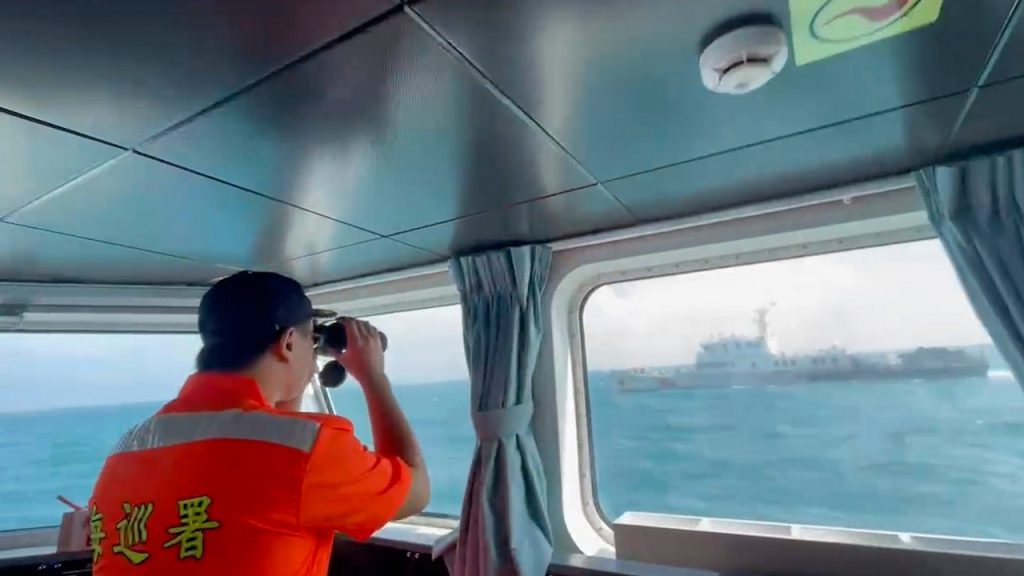The escalating tension between the United States and China over Taiwan has entered a new phase, marked by a significant increase in US military aid to the island nation and a sharp rebuke from Beijing. The Biden administration recently authorized two separate tranches of military assistance and sales to Taiwan, totaling approximately $866 million. This financial commitment underscores the US’s deepening involvement in bolstering Taiwan’s defense capabilities against potential aggression from China, which claims the island as its own territory. China’s reaction has been swift and condemnatory, accusing the US of making “dangerous moves” that threaten peace and stability in the Taiwan Strait. The escalating arms sales and military aid are fueling a delicate and potentially volatile situation in the region.
The first tranche of aid, authorized by President Biden, amounts to $571 million and is earmarked for various defense materials, services, military education, and training for Taiwanese personnel. This allocation follows a similar $567 million package approved just last September, demonstrating a consistent pattern of US support for Taiwan’s defense modernization. The second package, valued at $295 million, focuses on specific military hardware, including tactical radio systems and gun mounts. These sales and assistance packages are designed not only to enhance Taiwan’s self-defense capabilities but also to deter China from undertaking any military action against the island. The provision of advanced military technology and training signals a clear message of US commitment to Taiwan’s security, which has been consistently reiterated through diplomatic engagements and military operations in the region.
China’s strong condemnation of these US actions reflects its unwavering stance on Taiwan’s status. Beijing considers Taiwan an integral part of its territory and has vowed to achieve reunification, even if it requires the use of force. The recent US military aid packages are viewed by China as a direct challenge to its sovereignty and a provocation that undermines regional stability. The Chinese Foreign Ministry has urged the US to cease its arms sales to Taiwan and refrain from actions that escalate tensions in the Taiwan Strait. This escalating rhetoric underscores the growing friction between the two superpowers over Taiwan and the potential for miscalculation and unintended consequences.
The timing of these developments coincides with a period of increased military activity by China around Taiwan. Earlier this month, Taiwanese defense officials reported a significant deployment of Chinese naval ships and military planes in the region, raising concerns about a potential escalation towards conflict. This heightened military posture from China appears to be a response to several events, including Taiwanese President Lai Ching-te’s recent overseas trip, which included stops in Hawaii and Guam, a US territory. During his trip, President Lai engaged in conversations with US congressional leaders, further strengthening ties between Taiwan and the US. These interactions, coupled with the ongoing arms sales, have further angered Beijing, viewing them as a direct affront to its “One China” policy.
The intensifying military drills and deployments by China around Taiwan send a clear message of its resolve and its displeasure with the increasing US support for the island. These actions are also likely intended to intimidate Taiwan and to test the resolve of the US in its commitment to Taiwan’s defense. The recent Chinese military exercises are a stark reminder of the potential for conflict in the Taiwan Strait and the precarious balance of power in the region. The escalating tensions underscore the need for diplomatic efforts to de-escalate the situation and to prevent a miscalculation that could lead to a military confrontation.
The recent arms sales and military assistance from the US to Taiwan, coupled with China’s strong reaction, highlight the complex and increasingly volatile situation in the Taiwan Strait. The US’s commitment to supporting Taiwan’s self-defense capabilities is seen by China as a challenge to its sovereignty and a threat to regional stability. As both sides continue to assert their positions, the risk of miscalculation and unintended escalation remains high. The situation requires careful diplomacy and communication to manage the tensions and prevent a conflict that could have far-reaching consequences for the region and the world. The ongoing developments underscore the importance of finding a peaceful resolution to the Taiwan issue and avoiding actions that could further destabilize the region.

